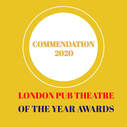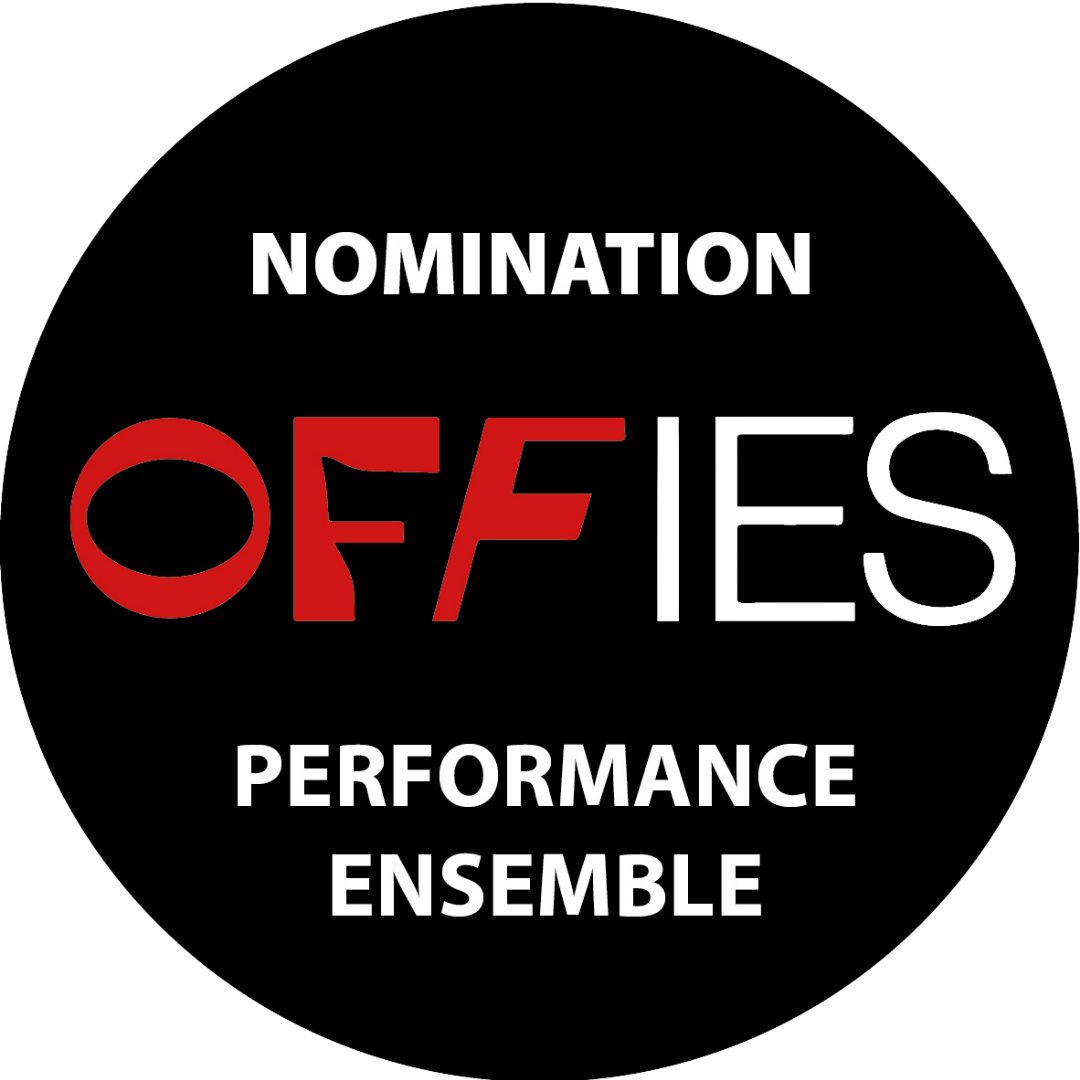The Bread and Roses Theatre will host a theatre festival of new writing that celebrates and champions imaginative concepts, spaceflight, fantasy, time travel, just to name a few. The genre of speculative fiction, also known as Sci-Fi is about to go centre stage from March 22 – 25.
Cyborphic presents Talos Theatre Festival 2018 and our newly appointed Marketing Manager,
Roman Berry, speaks with the Festival Director Christos Callow Jr to find out more about the origins and the excitement in the lead up to the Festival.
RB: Tell us about this year’s Talos Theatre Festival?
Christos Callow Jr: Talos: The Science Fiction Theatre Festival of London was founded in 2015, taking its name from the earliest robot in Greek mythology (well, a giant made of bronze but he was still an automaton, like Hephaestus’ servants). I don’t think there can be a Talos without some good robot plays! The festival is back this year, featuring plays with robots, unicorns, Frankenstein’s monster, clones, feminist utopias, and so many fascinating characters and visions!
RB: As the Festival’s Artistic Director what was the motivation to use Science Fiction as the vehicle/ theme for a theatre festival?
Christos Callow Jr: I’ve been interested in science fiction theatre since I started studying theatre at a drama school in Athens. I have worked before at The Bread & Roses Theatre, staging a fantasy play of mine, Voice, in 2015, and directed the science fiction play, SUM, by Susan Gray in 2014. I have founded with Susan the first international conference on science fiction theatre in 2014.
If the question is why I believe science fiction belongs on stage, the answer is, I think nothing belongs on the 21st Century stage more than science fiction; how can theatre-makers not engage with the same concerns and themes that film and literature are obsessed with?
Cyborphic presents Talos Theatre Festival 2018 and our newly appointed Marketing Manager,
Roman Berry, speaks with the Festival Director Christos Callow Jr to find out more about the origins and the excitement in the lead up to the Festival.
RB: Tell us about this year’s Talos Theatre Festival?
Christos Callow Jr: Talos: The Science Fiction Theatre Festival of London was founded in 2015, taking its name from the earliest robot in Greek mythology (well, a giant made of bronze but he was still an automaton, like Hephaestus’ servants). I don’t think there can be a Talos without some good robot plays! The festival is back this year, featuring plays with robots, unicorns, Frankenstein’s monster, clones, feminist utopias, and so many fascinating characters and visions!
RB: As the Festival’s Artistic Director what was the motivation to use Science Fiction as the vehicle/ theme for a theatre festival?
Christos Callow Jr: I’ve been interested in science fiction theatre since I started studying theatre at a drama school in Athens. I have worked before at The Bread & Roses Theatre, staging a fantasy play of mine, Voice, in 2015, and directed the science fiction play, SUM, by Susan Gray in 2014. I have founded with Susan the first international conference on science fiction theatre in 2014.
If the question is why I believe science fiction belongs on stage, the answer is, I think nothing belongs on the 21st Century stage more than science fiction; how can theatre-makers not engage with the same concerns and themes that film and literature are obsessed with?
RB: What have been the most exciting part about seeing the festival come together and what would you change about the current state of theatre?
Christos Callow Jr: “Exciting” may not be strong enough a word! First of all, it’s the collaborations and friendships that were formed as a result of the festival, the vision each person brought to the play they’re doing. The highly original plays themselves and the playwrights who have been so supportive of the festival; a couple of them are travelling for this from the US! And what’s most beautiful I think is the mix – half the directors are European and American, half the directors and the writers are women. And some of them are academics as well, and they bring years of research and knowledge into their craft, while others are young and geeky and have this passion in them about everything sci-fi. When finalising the programme, I tried to make sure every night has a little bit of everything.
The problem of science fiction theatre so far has been – what arguably Ralph Willingham diagnosed in the 90s – that those creating it aren’t well-read in science fiction, thus reproducing clichés that give the genre a bad name. The great challenge I think of the genre on stage is that you have to do both theatre well and sci-fi. But then of course I would say that, I did a PhD in science fiction and my other studies were in theatre, so I’m biased. I’ve also written (with Susan Gray) an article on the topic, Past and Future of Science Fiction Theatre, where we discuss where the genre is coming from, what’s its current state in British theatre and where it’s going – but that’s a mostly academic piece.
In British theatre science fiction is a bit of an elephant in the room. It’s there, and it’s been there for a while – who can forget the Science Fiction Theatre of Liverpool founded in 1976? – but at the same time it’s hiding in plain sight. Everyone knows that theatre is rooted in mythological narratives; in fantasy. It’s a shame that there have been many science fiction plays that were not marketed as such. I think it’s of vital importance to use the words “science fiction” whenever anything that appears on stage is, actually, science fiction. This is fortunately changing.
This is the cultural change I’m hoping to contribute to with Talos, what I’m hoping to do with the production company Cyborphic (https://www.cyborphic.com/), I co-founded with Andriana Domouzi, an expert in lost Greek tragedies; I coined the term blending Cyber with Orphic (from Orpheus who is both an artist and a mystic in Greek myth). This is what the theatre of the future is to me, that which blends the classical with the futuristic.
RB: How important is it to you that your work or the collaborators in this Festival relate/ reflect to our current political and social climate?
Christos Callow Jr: It’s inevitable. Theatre that doesn’t engage with the conditions in which it was created is irrelevant to the world around it. It can still be good theatre – “good” as in the performances in themselves, the production, the sensationalist aspect of it all, the surface if you like – but theatre needs to be in conversation with the society of its time, and what science fiction does best is that it offers a critique of the present; its most futuristic and otherworldly dystopian nightmares are distorted mirrors of the present world. The plays chosen for Talos all share this element; both the comedies and the more “serious” pieces, they engage with concerns that everyone has – things the audience will be thinking about on the way to the theatre, things they audience will be thinking after. This is what new writing is all about, this is also what science fiction is about. Science fiction theatre is not “kind of” contemporary, it’s truly contemporary.
Click here for tickets and more information on the Festival




 RSS Feed
RSS Feed













